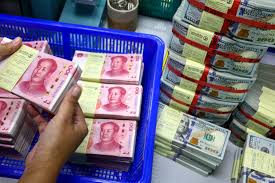Iron Brother China helps Pakistan by rolling over a massive $3.4 billion in loans

Karachi: In a critical financial development for Pakistan’s struggling economy, China has rolled over US $3.4 billion in commercial loans, providing a major boost to the country’s foreign exchange reserves, officials at the Pakistani finance ministry confirmed.
The move is expected to help Pakistan meet the International Monetary Fund’s (IMF) reserve target of over US $14 billion by the end of the current fiscal year, which concluded on June 30.
According to a senior official from the Ministry of Finance, Beijing has extended the maturity of two separate components: $2.1 billion currently held in the State Bank of Pakistan’s (SBP) reserves, which had already been rolled over multiple times over the past three years; and another $1.3 billion that Islamabad had repaid two months ago and has now been refinanced.
In addition to Chinese support, the finance ministry official confirmed that Pakistan has also received US $1 billion from Middle Eastern commercial banks and US $500 million from multilateral institutions, further consolidating its external account.
“These inflows bring our reserves in line with the IMF’s requirement of $14 billion by the end of the fiscal year,” the official said, underlining the strategic importance of these transactions for macroeconomic stability and continued engagement with the IMF.
The rollovers come at a time when Pakistan is navigating an economic recovery under a US $7 billion Stand-By Arrangement (SBA) with the IMF, agreed in 2023 to prevent a sovereign default. The bailout program, expiring at the end of June 2025, required Pakistan to implement wide-ranging reforms and maintain fiscal discipline while ensuring an adequate level of foreign reserves.
In March this year, China had already extended a US $2 billion loan by another 12 months. At the time, Khurram Schehzad, Adviser to the Finance Minister, confirmed the rollover and praised Beijing’s continued support.
Chinese financial backing has proven to be a critical lifeline for Pakistan, especially at times when traditional multilateral lenders have attached stringent preconditions to their assistance.
Rolling over a loan, technically referred to as refinancing, means the borrower does not have to repay the full amount immediately but can continue to use the funds under renewed or extended terms.
For Pakistan, this strategy has helped ease short-term repayment pressures while creating fiscal space to address structural economic challenges.
The latest Chinese rollover, combined with additional inflows from Middle Eastern banks and global institutions, pushes the reserves over the critical US $14 billion mark. This development is crucial not only for maintaining currency stability but also for negotiating a longer-term IMF loan program, which the government has already begun informal discussions on.
China has consistently extended financial and diplomatic support to Pakistan in recent years. In addition to commercial loans, Beijing has invested heavily in infrastructure and energy projects under the China-Pakistan Economic Corridor (CPEC), a key component of its Belt and Road Initiative (BRI). Chinese loan rollovers have become a recurring feature in Pakistan’s debt management strategy and are viewed as essential to keeping its external account afloat.
China’s decision to roll over Us $3.4 billion in commercial loans comes at a crucial time for Pakistan’s economy, enabling the country to meet critical IMF benchmarks and avoid a balance of payments crisis.
Combined with other recent inflows, the development strengthens Pakistan’s fiscal position, reduces immediate default risks, and sets the stage for a new long-term agreement with the IMF aimed at ensuring sustainable economic recovery.





